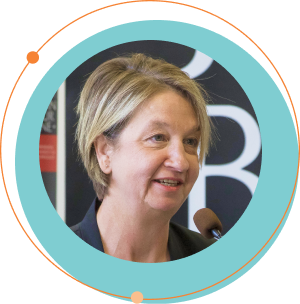Uwe Kippnich is the Coordinator Security Research at the Bavarian Red Cross (BRK) Headquarter. He is a high-level trained expert for the EU Civil Protection Mechanism. He is in charge of BRK research activities and is involved in several research projects of the European Union. As a professional parademic and male nurse he combines expertise from the field with research experience. He was involved in some national and international missions. He is involved in the Covid-19 Crisis management . He is board member by Public Safety Communication Europe (PSCE) and chair of the user committee.
The Bavarian Red Cross (DE-BRK) is a regional branch of the German Red Cross (GRC) and part of a worldwide movement assisting victims of conflict and disaster and people affected by social or health related crisis. The fundamental principles of the Red Cross Movement are Humanity, Impartiality, Neutrality, Independence, Voluntary Service, Unity and Universality. The Bavarian Red Cross is integrated into the German Civil Protection System and partner within different national and international research projects.
The Bavarian Red Cross (DE-BRK) is the largest charity and disaster relief organisation in Bavaria. In the field of ambulance services the (DE-BRK) provides about 80% of the services with more than 4.300 professional paramedics, 8 integrated command centres (emergency call number 112), 2 rescue helicopters and 320 Rescue Station. Furthermore, the BRC is active in several areas of essential welfare services. About 120.000 volunteers from all sectors of services, such as the Mountain Rescue, Water Rescue and the Youth Red Cross provide about 4 million hours of service a year. In addition, the Bavarian Red Cross is involved in the crisis management in the COVID-19 situation. The Bavarian Red Cross Headquarters in Munich coordinates the requests and shares the relevant Information between all NGO and GO`s. The (DE-BRK) is also involved in national and international (FP7 and H2020) research projects. In international webmeetings the (DE-BRK) is providing information about the current situation in Germany and is working on solutions for the crisis together with the networks (e.g. EU funded projet NO FEAR)Short






